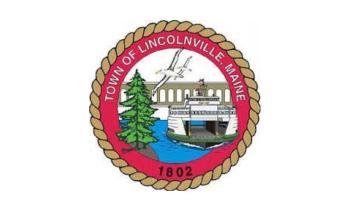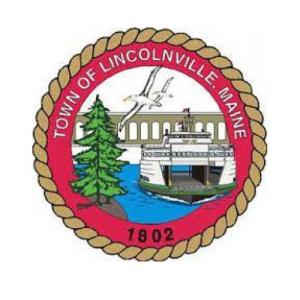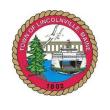Clerical error with recently approved Lincolnville school budget may go before voters for resolution
LINCOLNVILLE — In the process of setting the annual tax bills for Lincolnville property owners a $331,709 error on the school budget warrant that voters approved May 19 was discovered. Now, the town must decide whether to go back before voters to resolve it.
This will likely be in the form of a special town meeting held in August, but that is up to the Lincolnville Select Board to decide at an upcoming meeting.
There is pressure to get the fiscal mistake remedied because the Lincolnville Town Office is currently readying the annual property tax bills to be circulated to home and business owners throughout town by the third or fourth week of August. Town staff need finalized school expenditure numbers to complete the process.
The issue was explained in detail by School Union 69 (Appleton, Hope and Lincolnville) Superintendent Shawn Carlson, who has been in his new post for five days. Carlson had been Assistant Superintendent at the Five Town CSD and SAD 28 and was hired last winter to step into the Union 69 leadership role, following the resignation of Kathryn Clark and her recent departure.
He was surprised as anyone when Lincolnville Town Administrator David Kinney told him about the discrepancy just days into his new job. Carlson began investigating and determined it was a clerical error that resulted in Lincolnville's May 19 Special School Budget Town Meeting Warrant Article 13 being off by $331,709.
This means that town voters must, by statute, approve a new warrant article that effectively replaces Warrant Article 13 so that taxpayers raise $1.6 million to fund the school, not $1.2 million.
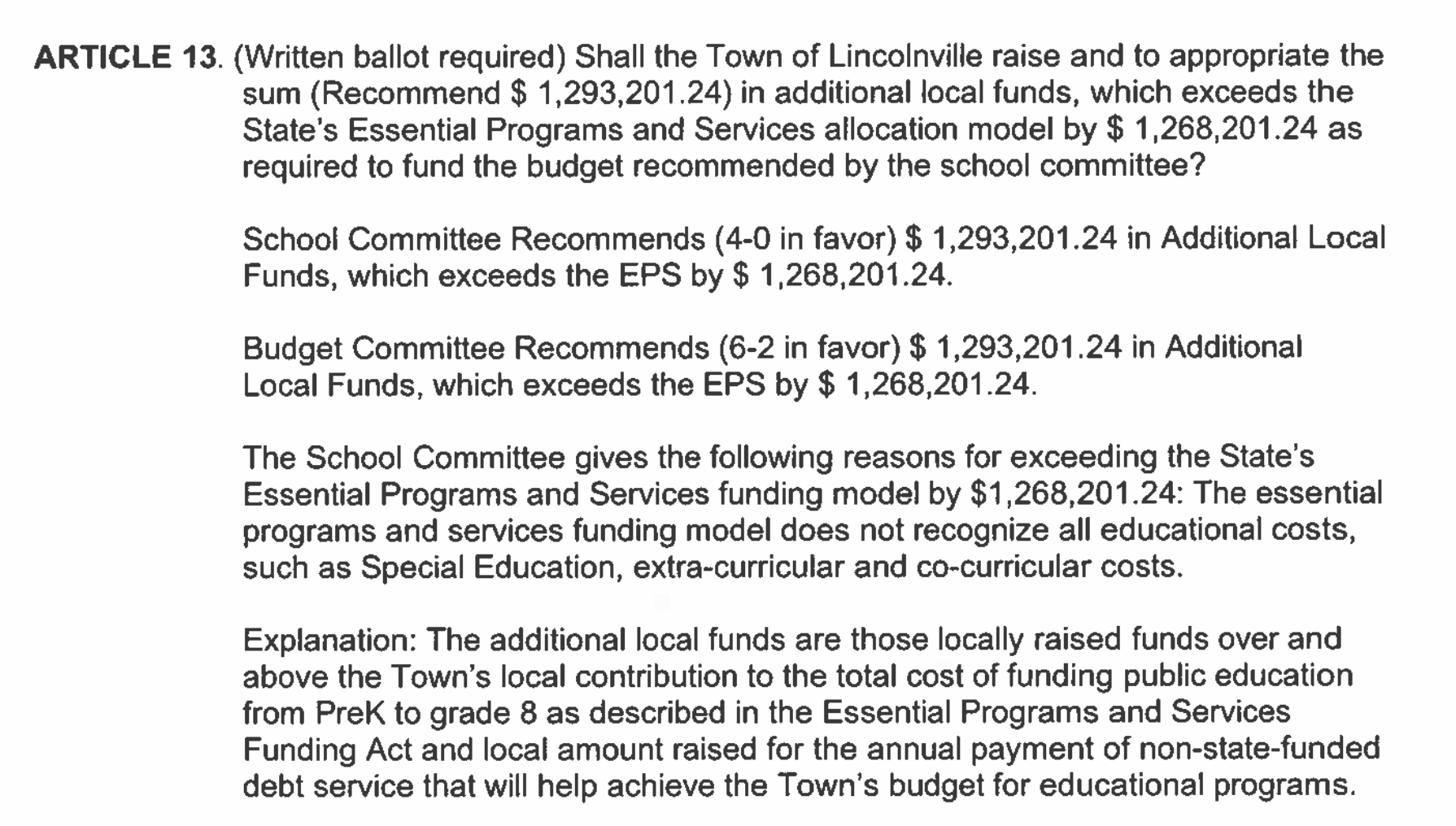
Article 13, as it appeared before voters on May 19, and was approved by voters.
The problem, as Carlson explained July 15 at a special meeting of the Lincolnville School Committee, which was also attended by the Lincolnville Select Board and several residents, arose when a staff member writing Warrant Article 13 in April transposed the number from the wrong revenue sheet; in a nutshell, state revenue was recorded twice.
Corrections were made in May and new numbers were applied; however, Warrant Article 13 was the one exception, and the mistake went undetected. Carlson presented a series of slides at the July 15 meeting that broke down the results of his inquiry.

Slide courtesy Superintendent Shawn Carlson, School Union 69
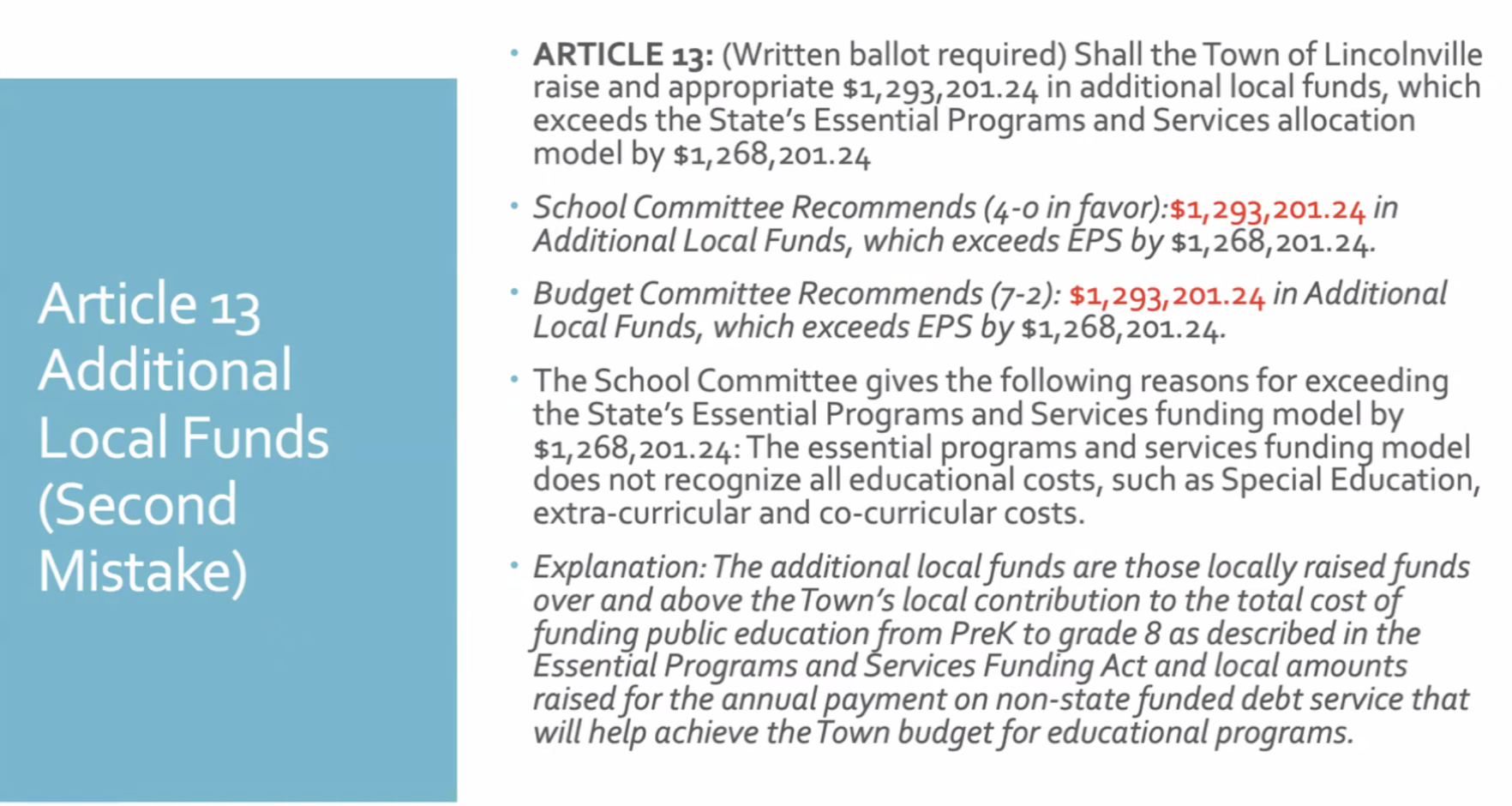
Slide courtesy Superintendent Shawn Carlson, School Union 69
The School Committee and Carlson noted July 15 that the budget expenditures approved by voters, and as written in the other school budget warrant articles (see attached PDF) do not change, and are exactly what the public reviewed in the spring when the 2025-2026 budget was being crafted.
But, to not ask the voters to revisit Article 13 would reduce the approved expenditures by $331,709. That would directly affect staff and programming, said Carlson.
He outlined options: apply any unassigned revenue from previous years, use capital reserve funds, rely on tuition (students who may choose to pay to enroll in Lincolnville Central School), or put another warrant article before voters authorizing the town to bill taxpayers the $331,709.
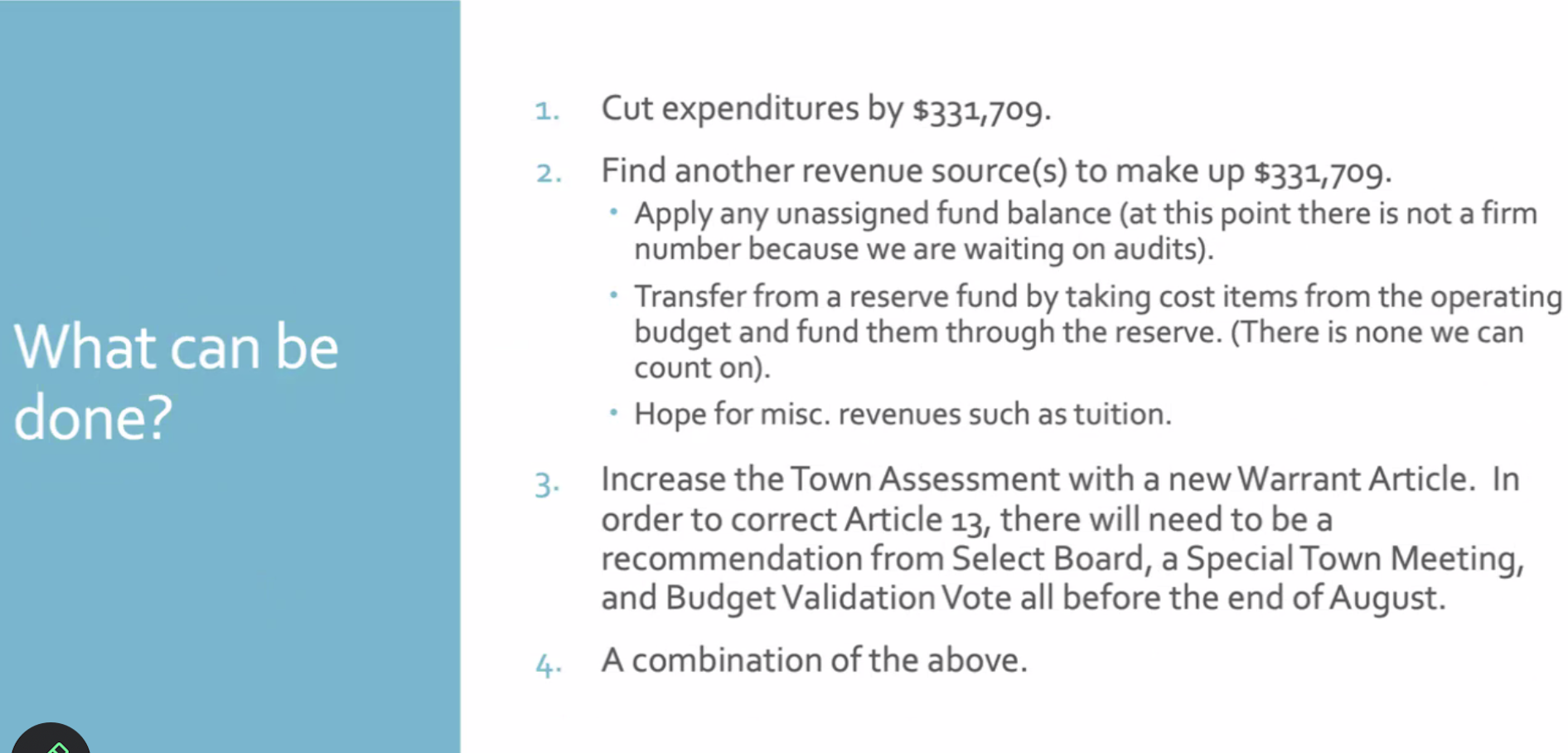
Slide courtesy Superintendent Shawn Carlson, School Union 69
The audit that would tell the town how much there is in the unassigned balance is slow in being completed, as was noted at the meeting, due to auditing firm delays.
"So, I cannot tell you in good faith that the money is there," said Carlson.
The School Committee confirmed that if any leftover money exists following the annual audit, it would be deposited in the school's capital reserve fund.
The capital reserve fund currently has little to nothing in it, said Carlson. That money was most recently used to repair the school roof, said School Committee Chair Tracee O'Brien.
Tuition at the elementary and middle school age, is unlikely, and, "I would say, nonexistent," said Carlson.
“I’m recommending the third option,” he said. "For that to happen, we would draw up a brand new warrant article.”
Per municipal process, the warrant article would then proceed to the Budget Committee for review and recommendation, and then to the Select Board, which would make the final decision to go forward with a special town meeting.
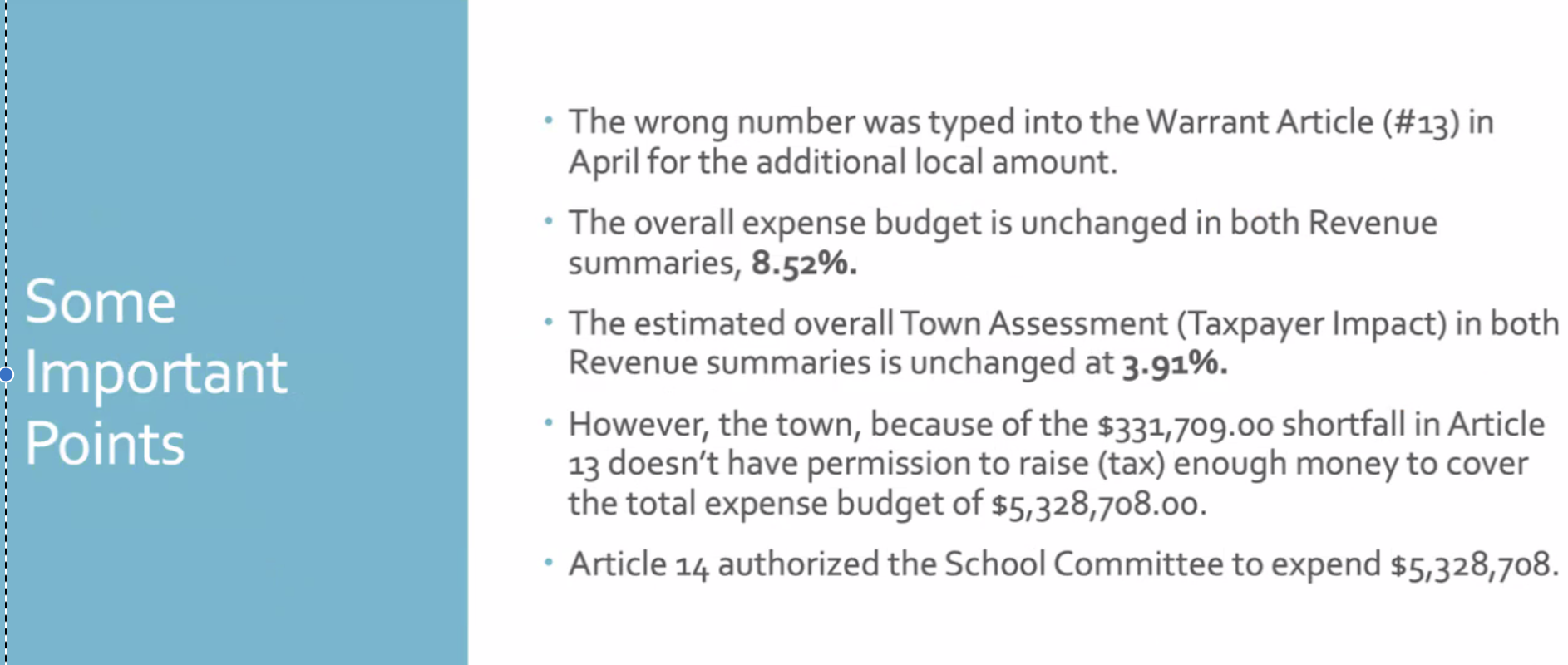
Slide courtesy Superintendent Shawn Carlson, School Union 69
A tentative timeline was presented to the School Committee that includes a Budget Committee meeting next week, a crafting of the new warrant article the following week, a Select Board meeting July 28, and then, if the special town meeting and budget validation vote is approved for moving forward, then a possible town meeting on August 5, and then a final vote on August 12.
The topic of how to inform the community was discussed at length at the July 15 meeting. It was agreed that the School Committee acknowledge the mistake.
"We need to communicate clearly that we are not asking more money than they initially approved," said Carlson.
Fixing the warrant article problem does not, the committee agreed, change what the committee had discussed over the winter and spring during the school budget deliberations.
If voters do not approve a new warrant article that restores the $331,709 into the tax commitment, the taxes would be reduced. Correspondingly, the reduction would affect the staff and programs, Carlson emphasized.
He said the Union 69 Central Office is due for, "some self-reflection."
Carlson added: "This is the leanest central office I have ever seen," and is responsible for three school budgets.
"It is incumbent on my seat to not let this kind of mistake happen again," Carlson said.
The Committee reiterated, before adjourning its meeting, that the warrant article is not asking for more funds, but is seeking approval for taxing property owners an additional $331,709.
Reach Editorial Director Lynda Clancy at lyndaclancy@penbaypilot.com; 207-706-6657


